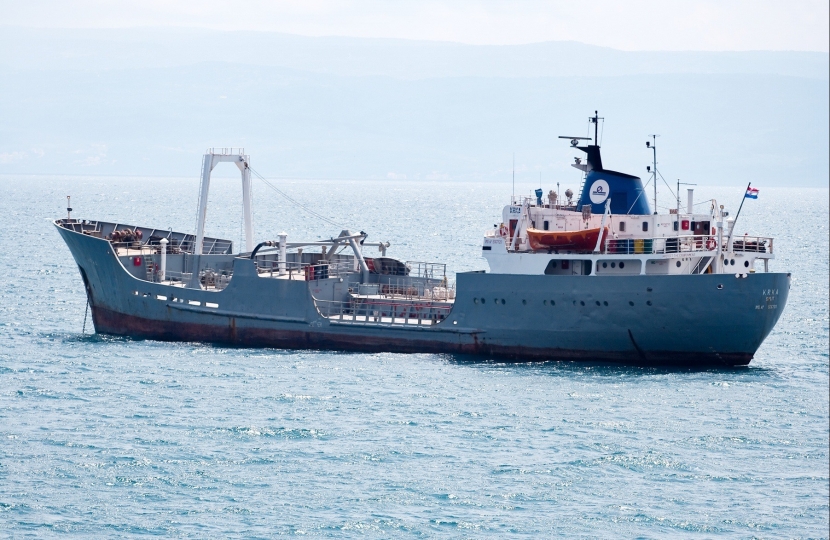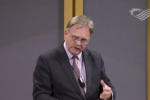
In light of this week’s tragic news that the bodies of 39 people were found in a lorry container in Essex, with initial reports stating that they had entered the UK via Holyhead, North Wales Assembly Member Mark Isherwood has questioned the Transport Minister over what action the Welsh Government is taking to address the fact that Holyhead has long been seen as a “soft spot” for people smuggling into the UK. Police subsequently announced that they no longer believe the victims were brought through Holyhead Port.
in the Welsh Parliament this afternoon Mr Isherwood paid condolences to the families of the 39 who were found dead on Saturday, and asked Ken Skates AM what dialogue the Welsh Government's own Anti-Slavery Co-ordinator has had with Stena and Irish Ferries since the port was first identified as a soft spot.
He also called on the Minister to discuss the issue with Kevin Hyland OBE, the United Kingdom's first Independent Anti-Slavery Commissioner.
He said:
“I pass on my condolences to the families of these people who've suffered a terrible, terrible experience, whatever their motivations in coming here might have been. It's actually several years since I first raised in this Chamber a concern raised with me that Holyhead was a soft spot for people smuggling into the UK. ‘Haven of Light’, a non-profit organisation focused on prevention, awareness-raising and support for survivors of modern slavery and human trafficking in North Wales, told me in May that they had never been able to find any real answers as to whether or not the crossings from Ireland to Holyhead and vice versa are safe, although what they're being told by members of the public and senior clergy is that there are often suspicions that people are being brought into the UK by the ferries at Holyhead. They'd previously told me that the main smuggling lines through Holyhead came from Eastern Europe, particularly Romania and Bulgaria, and also, from Vietnam, and they also told me that they were told last October that ‘Holyhead was now sorted’.
“Kevin Hyland, OBE, the United Kingdom's first Independent Anti-Slavery Commissioner, having previously been the Head of the London Metropolitan Police's Human Trafficking Unit, told me that cases referred in Wales last year included, specifically, 10 victims from Vietnam. He now works with the Organisation for Security and Co-operation in Europe on support for victims and survivors, and is Ireland's representative on the Council of Europe's Group of Experts on Action Against Trafficking in Human Beings. He also speaks at the United Nations Security Council on these matters. And, again, he told me personally that across the UK and globally, denial around the issue of what human trafficking manifests itself as is paramount. He said that there's too much back slapping, when 99.6 to 99.7 per cent of victims are missed across the world, and only 0.35 per cent of perpetrators were convicted last year globally.
“So, I've got two questions. One: would you be willing, or with appropriate colleagues, to meet Kevin Hyland, who is perhaps the leading global expert on this matter, who is very eager to engage with the Welsh Government on this matter? And, in the shorter term, perhaps you can give a quicker answer: what dialogue has the Welsh Government's own Anti-Slavery Co-ordinator had with Stena and Irish Ferries, not just today or since this tragic news, but over recent months and years since this soft spot was first highlighted?”
The Minister said he would be more than willing to meet with Kevin Hyland, and that a meeting with a Minister from the Home Office would also be helpful.
He added: “We are in touch with the investigators to learn as much as we possibly can, and to apply any lessons we can glean from this incident, and apply them as soon possible.”
